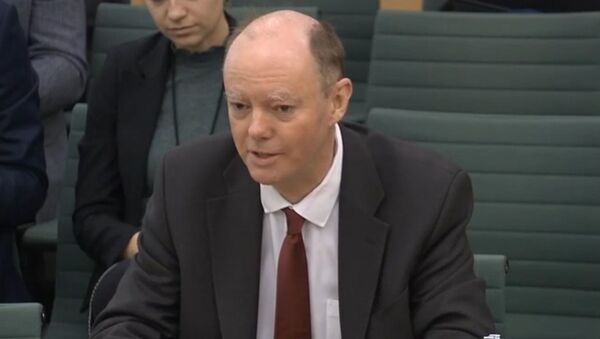Coronavirus illness 2019 (COVID-19) primarily transfers like other respiratory droplet illnesses, and so can't result in infection simply by touching with hands, according to Chris Whitty, the UK's Chief Medical Adviser.
Witty and Jenny Harries, Deputy Chief Medical Officer for England, spoke to the Health and Social Care parliamentary select committee on 5 March to answer questions from MPs regarding the global epidemic. He sought to distinguish the illness from Ebola which primarily transfers via touch.
The illness "looks like a primarily respiratory droplet infection", he said explaining that means infection results when someone "coughs or sneezes, usually within a couple of meters of someone, and usually for a relatively prolonged contact".
England's chief medical adviser Prof Chris Whitty on coronavirus at Commons health committee questions
— BBC Politics (@BBCPolitics) March 5, 2020
Latest: https://t.co/YsQBfLfr8e pic.twitter.com/WJrHzrAwKO
Witty explained that while he'll be able to give "better answers in six months" the current understanding is that there is "probably a secondary route" to infection via hands.
This secondary route would come into play if, for example, an infected surface is touched by someone who proceeds to touch their face, nose or eyes without washing their hands first. "Just touching" surfaces "will not give you the virus", he said, "it's if you touch it and then touch your face having not washed your hands".
The key thing is that “It doesn’t get through the skin”, Witty emphasised, "washing hands is really the key”.
According to the most recent data from Johns Hopkins University's Center for Systems Science and Engineering 95,748 globally confirmed cases of COVID-19, only 3.42% of cases have resulted in death.
Meanwhile 55.80% of cases have resulted in recovery. The remainder 39,039 (40.77%) have yet to conclude either way.


